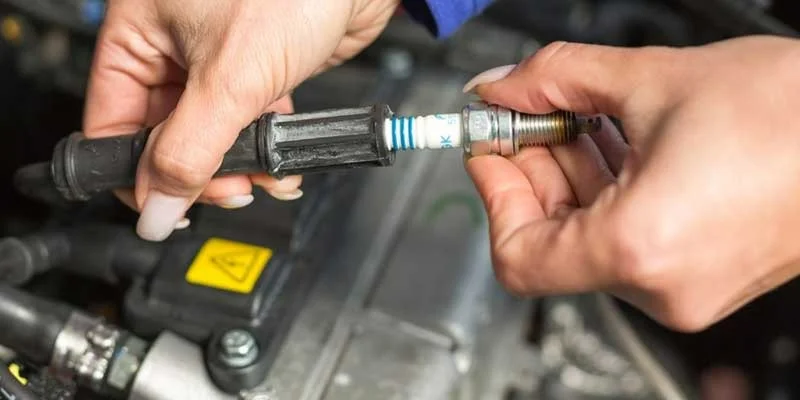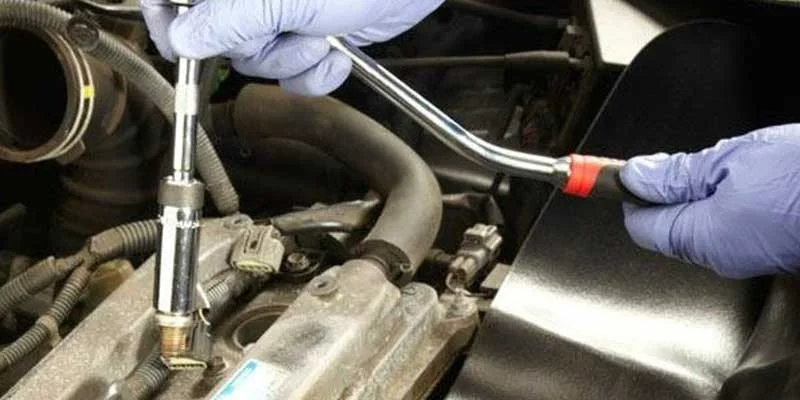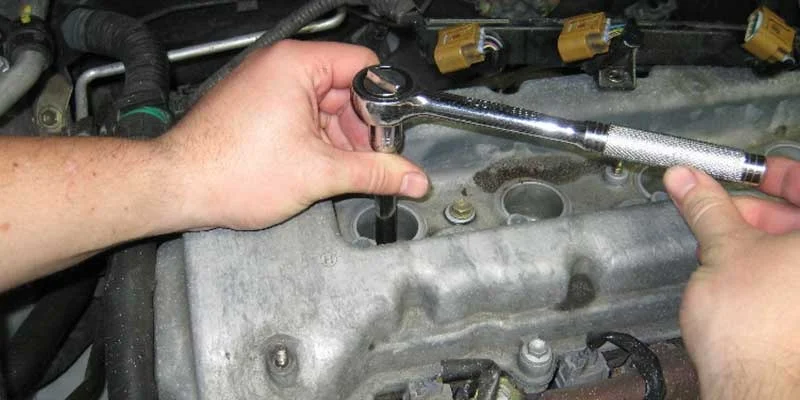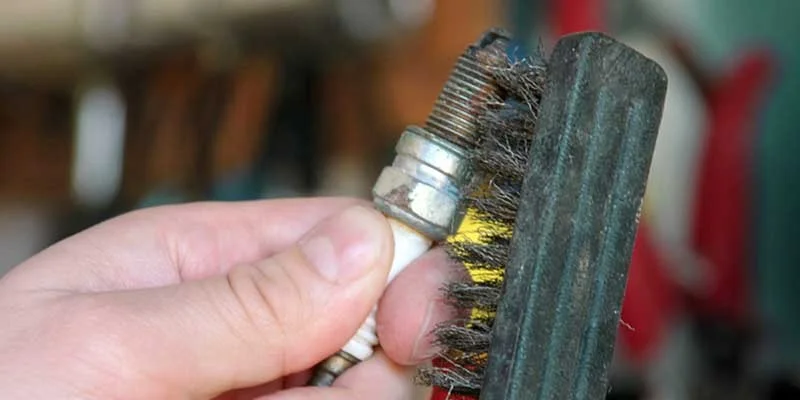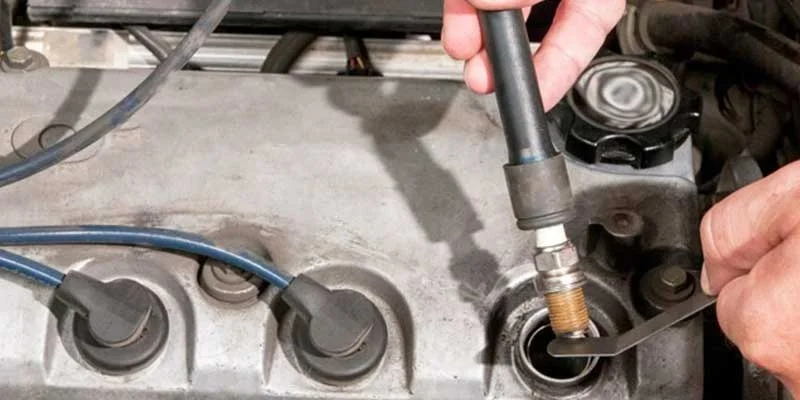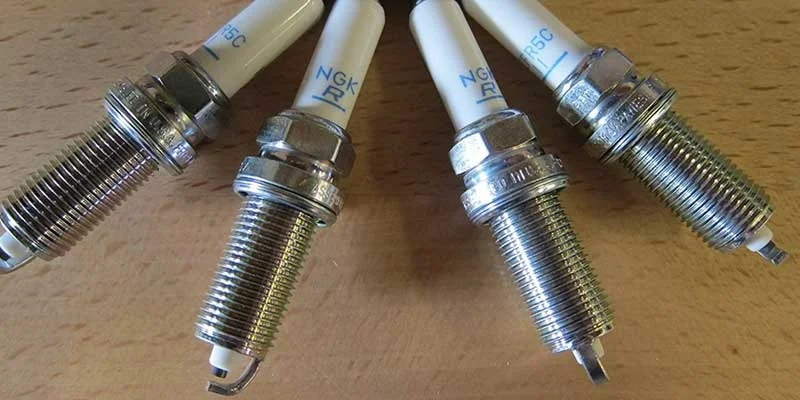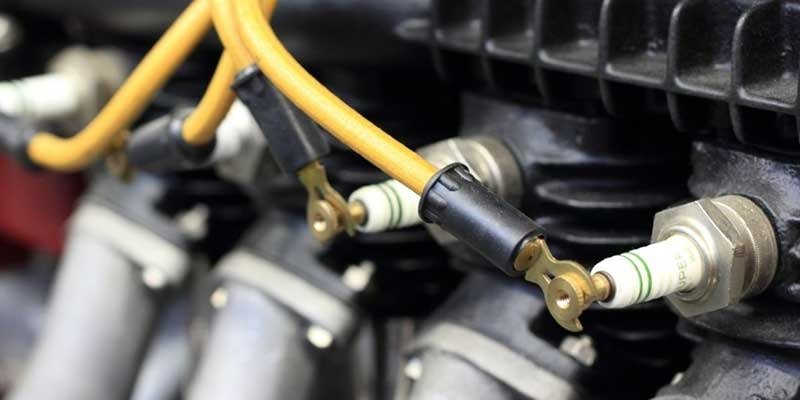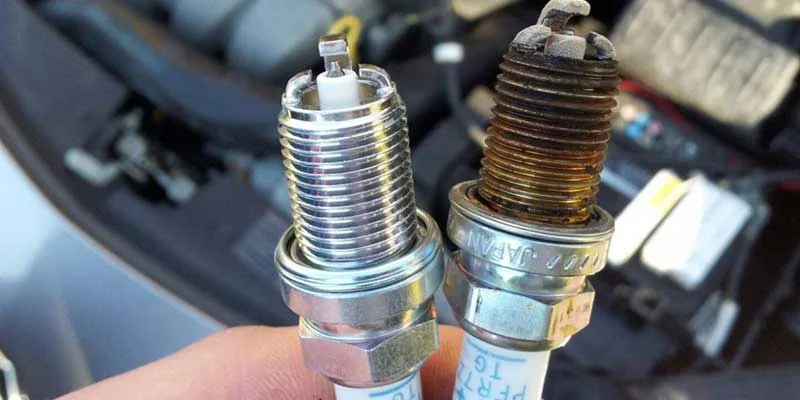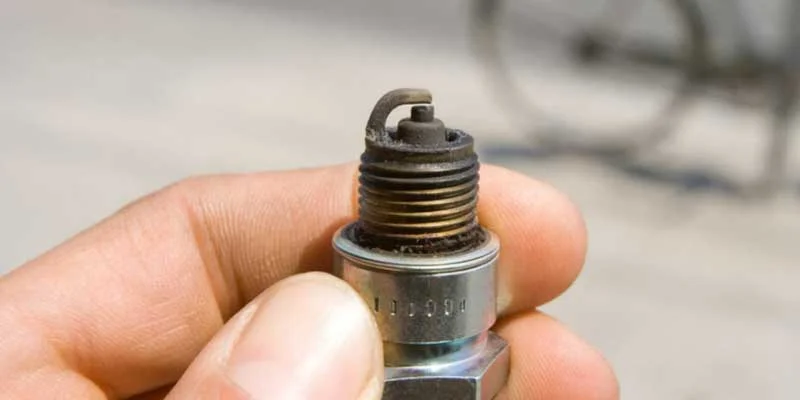What do spark plugs do in cars? Why is Spark Plug essential for a car? Can My Car run without a spark plug? What happens when a spark plug turns terrible?
Spark plugs are devices that ignite fuel in internal combustion engines. They are usually located under the hood or in the engine compartment. With an average life of 1,00,000 miles, the spark plug needs frequent cleaning to work properly.
Spark plugs are essential components of the ignition system of an automobile. The spark plug is responsible for igniting the air/fuel mixture inside the cylinder during the compression stroke.
What Do Spark Plugs Do?
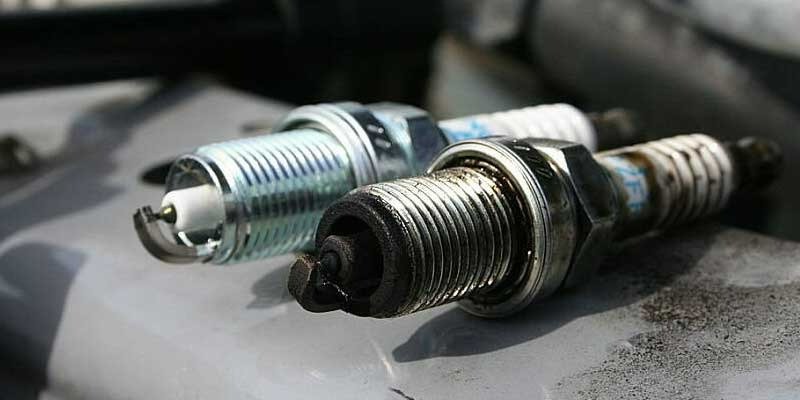
Spark plugs control the current flow from the battery to the distributor and then to the coil. It allows the coil to produce a high voltage which will jump across the gap between the electrodes on the plug. When this occurs, it creates a spark that ignites the gas mixture in the cylinder.
To understand the function of Spark Plug easily, we need to recall an essential process in the engine called the internal combustion process that converts the potential energy into kinetic energy.
What is an Internal Combustion Process?
An internal combustion process is when a substance burns with oxygen as its oxidizer. In other words, the burning occurs within a closed container’s confines.
The most common example of this process is gasoline burning in a carburetor. The gasoline is mixed with air and compressed by the piston. A small amount of heat is generated by the friction of the moving parts. As the piston moves down, the pressure increases until the point at which the fuel-air mixture reaches autoignition temperature. At this time, the flame front begins to move through the mixture.
The flame front travels faster than the speed of sound in the mixture. It causes the mixture to expand rapidly, creating more pressure. This pressure forces the piston up again. More fuel is injected into the chamber, and the cycle repeats itself.
Why Are Spark Plugs Important?
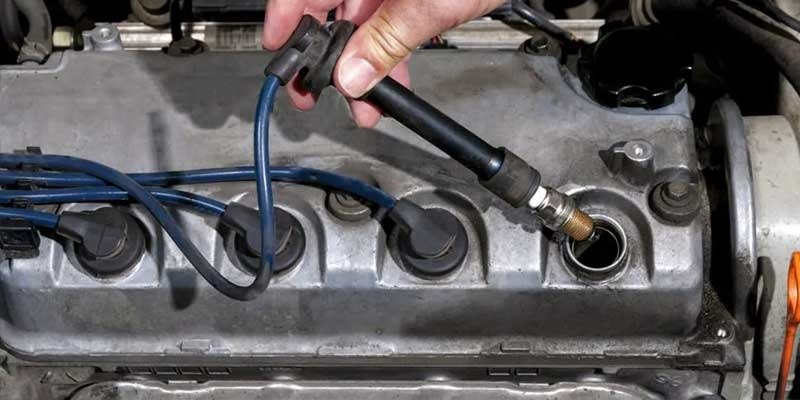
As you can see, the spark plug plays a vital role in the entire process. Without it, there would be no combustion.
If the spark plug fails to provide a good electrical connection, the engine may not start. The engine may misfire if the spark plug does not have enough power to create a spark. If the spark plug has too much resistance, the engine may overheat.
When Should I Change My Spark Plug?
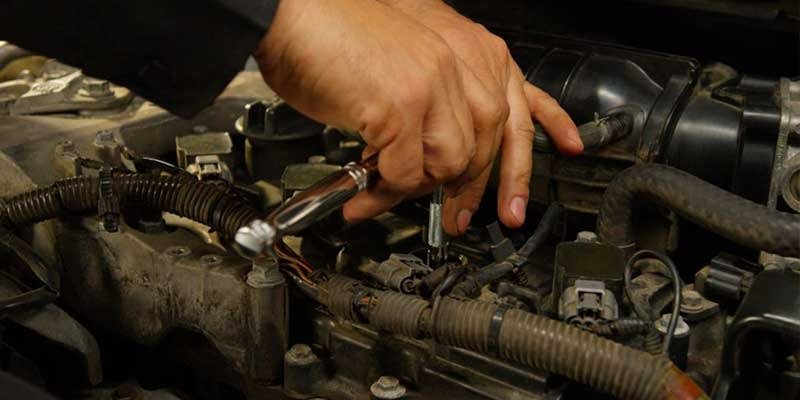
Extended-life spark plugs are often installed at the factory when you buy a car. They’re not always cheaper than regular ones, but they are sturdier. These extended-life plugs are generally rated for about 100,000 miles.
When they reach that mileage mark, the gap between the electrodes gets more expansive, which causes less efficient combustion and the possibility of a misfire.
If your plug eroded to the point where it broke, it could cause significant damage to your engine’s cylinders, which means a costly repair.
It is essential to check your car’s owner’s manual to see how old your spark plugs are. If you notice any problems with your engine, get them repaired before they cause damage.
Spark plug replacement intervals vary depending on the manufacturer and type of vehicle. Most vehicles require spark plugs every 100,000 miles. You can extend the spark plug life up to 1,20,000 miles with a good maintenance regime.
What Should I Consider Before Buying The New Spark Plugs?
When choosing replacement spark plugs, you must consider what kind of engine you have. The type of spark plug varies depending on the model and year of your vehicle.
If you’re looking at spark plugs for an older car, you might need something made of nickel and steel since these materials are less expensive than other options, as you might not be inclined to splurge on an old car.
On the other hand, if you’re buying spark plugs for a newer car, you should probably go with a high-quality material like platinum or iridium. These spark plugs last longer and isn’t as prone to corrosion as cheaper alternatives.
Check with a professional mechanic to understand what kind of spark plugs are required for your car.
On average, a spark plug costs you around $20 to $120, depending on the type and quality of the spark plug you choose.
What Happens When Spark Plugs Go Bad?
Spark plugs should last anywhere from 50,000 to 100,000 miles. After this point, your spark plugs will start to go wrong. You may notice symptoms including slower acceleration, decreased fuel efficiency, engine misfires, problems starting the car, and an idling problem. If you experience these symptoms, you should bring your vehicle to a professional repair shop.
What is the benefit of replacing a spark plug?
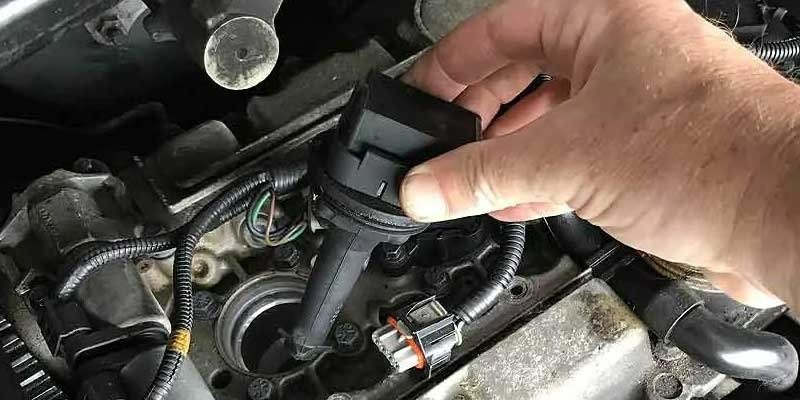
Spark plugs aren’t just about starting your engine. They also ensure proper operation throughout the lifetime of your vehicle. A properly working ignition system ensures a fully functional combustion system.
If your spark plugs are performing poorly, several potential problems may arise, including poor fuel economy, increased emissions, and inconsistent performance. Replacing your spark plugs before they fail helps prevent these potential problems.
1. Smooth Acceleration
The old and damaged spark plugs are responsible for jerky starts. Once you turn on the ignition, you notice that the engine takes a long time to start. As the broken spark plug cannot discharge its function correctly, it hampers the internal combustion process resulting in engine idling.
2. Improved Fuel Economy

The first time you start your vehicle after replacing its spark plugs, you might notice an improvement in acceleration, especially at higher speeds. Spark plugs help with combustion efficiency and fuel economy. If you replace them regularly, you will see even more improvements.
Misfiring spark plugs are responsible for reducing the fuel economy by 30%. Hence, changing the spark plugs periodically helps improve your car’s overall fuel economy.
Frequently Asked Question
Can Good Quality Spark Plug Increase Horsepower of My Vehicle?
Technically No! A spark plug helps improve the internal combustion process and thus indirectly contributes to the engine’s efficiency. The response time of the engine gets faster. The new spark plug helps in restoring the peak performance of the car. Hence, when you use the car for the first time after replacing the old spark plug, you can notice a considerable increase in the performance of your car.
How To Replace Spark Plugs In Your Car?
Here are the steps for replacing a bad spark plug with a new one:
Step 1: Remove the spark plugs from the engine.
Step 2: Disconnect the negative battery cable.
Step 3: Clean the spark plug holes with a wire brush.
Step 4: Apply some oil to the threads of the spark plugs.
Step 5: Install the new spark plugs into their respective holes.
Step 6: Connect the positive battery cable.
Step 7: Start the engine and check whether it starts quickly.
How much does Spark Plug Affect Performance?
The misfire due to a failing spark plug deteriorates the overall performance of your vehicle. If the spark plug fails to ignite even for a single spark, it leads to incomplete combustion, damaging the catalytic converter.
Does Iridium Spark Plug increase HP?
Compared to platinum spark plugs, Iridium spark plugs are highly durable. Spark plugs are not directly associated with improving the HP of your car. The fine wire center electrode in the iridium spark plug conducts the electrical energy faster, leading to improved firing efficiency.
What Does New Spark Plug Improve?
New Spark Plugs are responsible for improving the fuel economy, saving you the fuel cost in the longer run. It also improves the power output of your vehicle.
Conclusion
Spark plugs play a vital role in starting and running your vehicle smoothly. They are responsible for igniting the mixture of air, gasoline, and fuel in the cylinder. When they fail to perform their job correctly, it results in poor combustion, which causes the engine to misfire. It ultimately reduces the life span of the engine. So, if you want to keep your vehicle healthy and safe, change the spark plugs once every year.

My Name is Christopher Angels, and I am a postgraduate in mechanical engineering. Cars have always excited me as a child, and soon I decided to dive into the world of cars by pursuing mechanical engineering. I also worked as a Mechanic for over 3 years to understand Cars’ anatomy and how each part contributes to its working.
My Name is Christopher Angels, and I am a postgraduate in mechanical engineering. Cars have always excited me as a child, and soon I decided to dive into the world of cars by pursuing mechanical engineering. I also worked as a Mechanic for over 3 years to understand Cars' anatomy and how each part contributes to its working.

